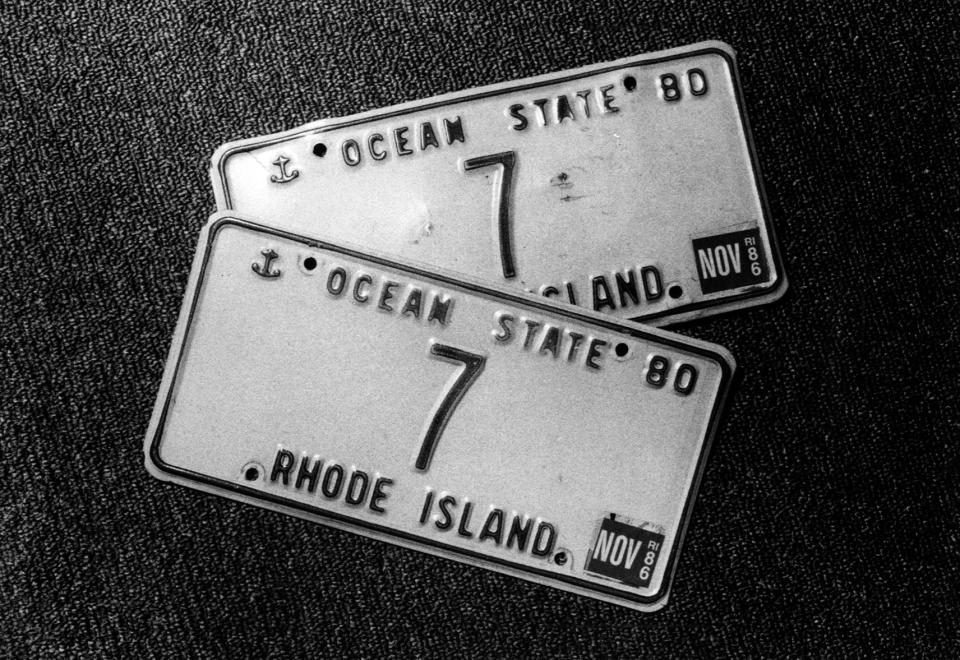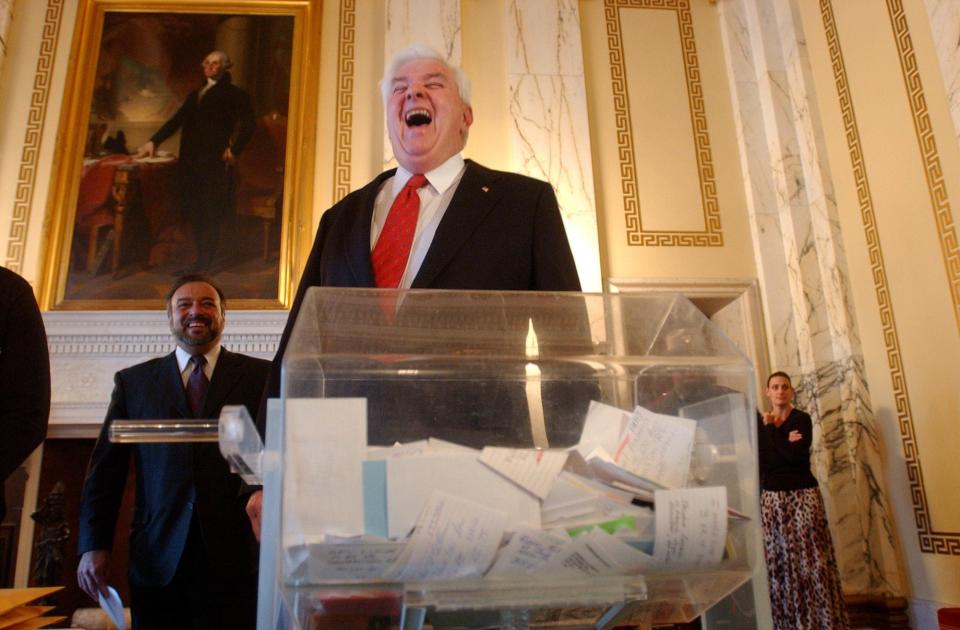PROVIDENCE – If you were hoping to get an insider’s view on who in Rhode Island has a coveted low-number license plate, not so fast.
The state Supreme Court on June 6 struck down The Providence Journal’s long-fought bid under the Access to Public Records Act to get a list of “preferred plates.”
Why? The court ruled that the federal Driver’s Privacy Protection Act of 1994 shields the state from releasing an individual’s personal information connected to motor vehicle records.
“[I]t is our view that an individual’s license plate application certainly pertains to his or her motor vehicle registration and, as such, the personal information contained therein is entitled to protection under the DPPA,” the high court said in the ruling written by Justice Erin Lynch Prata.
The court rejected arguments that there is a “minimal private interest inherent in one’s name” as unconvincing, instead concluding that an individual’s name is among the categories that is protected from disclosure under federal law.
“In light of the foregoing, it cannot be said that defendant unlawfully denied the subject APRA request. Because the information sought is protected under the DPPA, it unequivocally follows that the records requested are exempt from disclosure,” the court said.
In doing so, the court upheld a 2024 decision by Superior Court Judge Joseph J. McBurney.
Gov. Dan McKee’s office praised the ruling.
“Federal and State law clearly protect the privacy of motorists’ registration information. The governor’s office fought to protect Rhode Island motorists’ right to privacy. We are gratified that the Rhode Island Supreme Court has affirmed the governor’s office’s long-standing position,” McKee spokeswoman Olivia DaRocha said in an email.

In 1986, Carmine Carcieri paid Joseph McDevitt $25,000 to surrender Plate 7 to the Division of Motor Vehicles. Carcieri, a distant relative of former Gov. Donald Carcieri, then made a special application to the DMV and got the plates.
Why The Journal fought to get the low-numbered plates
So ends The Journal’s long quest for a list of all individuals who’d been assigned a low-number plate by the governor’s office.
In Rhode Island, it’s governors who dole out the prized plates, not the Division of Motor Vehicles.
The Journal filed an Access to Public Records Act request for the record in 2022, seeking an accounting of all individuals who’d been assigned a preferred plate in the previous 18 months.
The governor’s office denied that request, so The Journal’s lawyers appealed to the attorney general’s office, which issued a decision backing McKee’s administration.
LMG Rhode Island Holdings Inc., publisher of The Providence Journal, appealed that determination to Superior Court, arguing that the state had violated disclosure requirements under public records law.
McBurney found that federal law was “clear and unambiguous” that states are barred from disclosing personal information connected to a motor vehicle record. The governor, in this instance, acts as an agent of the DMV in approving applications for preferred plates.

Gov. Lincoln Almond laughs at a joke before he pulls the first card for the state’s low-number license-plate lottery at the State House in 1995.
McKee administration’s request for legal fees denied
The Journal asked the Supreme Court to review that determination and, again, the justices sided with state officials.
The high court, however, dismissed the state’s claims that it should be entitled to legal fees, again upholding McBurney’s finding that The Journal’s arguments were not frivolous and had “some grounding in existing law.”
McKee administration fights open-records overhaul
The ruling comes during the final weeks of the legislative session and as a push to reform the state’s public records law to permit such a disclosure remains stalled in committee.
The McKee administration, for a second year, fought efforts by open-government advocates to remove obstacles to public access to public records such as police bodycam footage and the names of those with “preferred” license plates.
McKee’s chief legal counsel, Claire Richards, warned that the legislation to overhaul the law would “intrude on the privacy of the state’s citizens, undermine criminal investigations and lead to burdensome and overbroad requests” whose costs would ultimately be borne by taxpayers.
This article originally appeared on The Providence Journal: RI court says list of low-numbered plates can stay secret. Here’s why.
